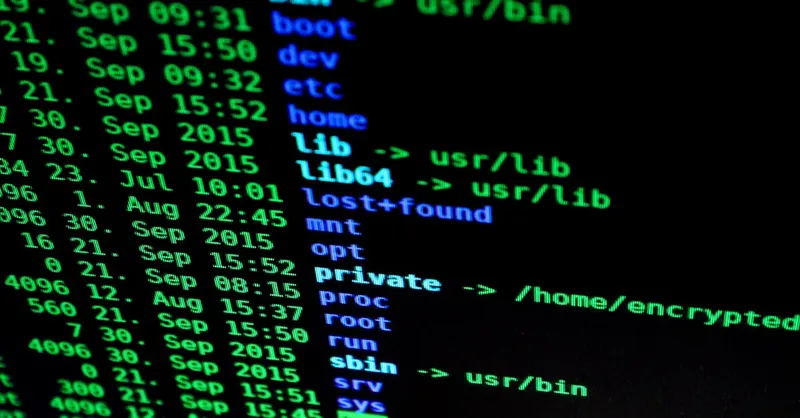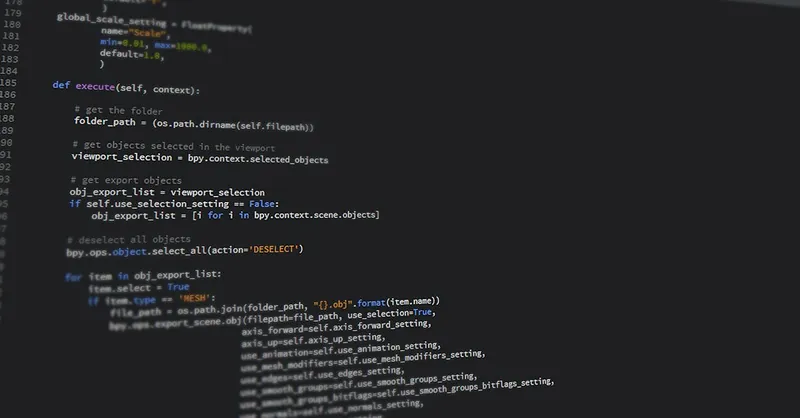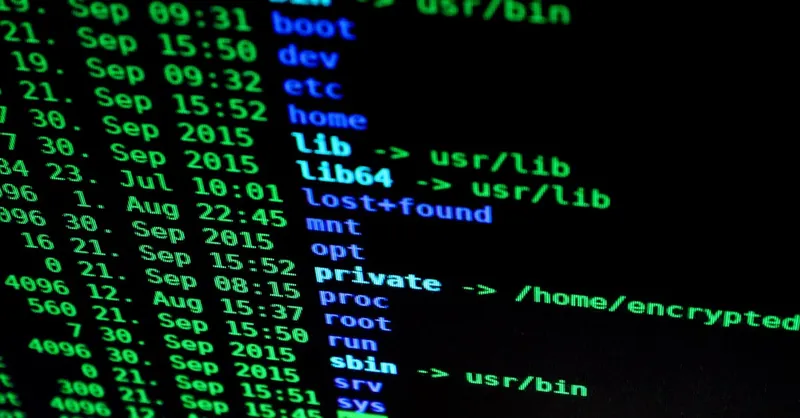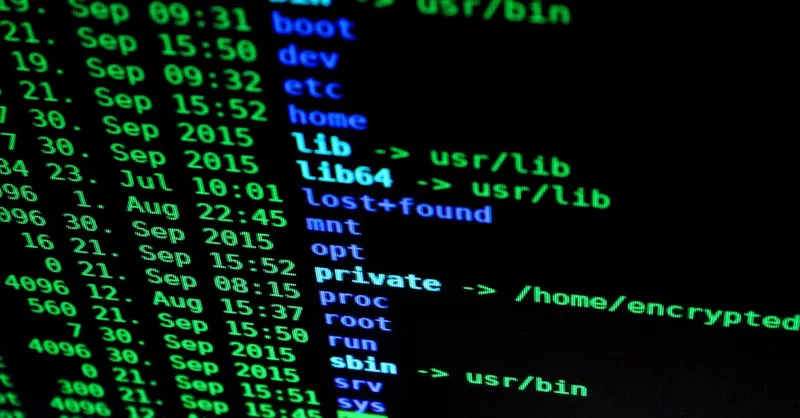Top Ethical Hacking Interview Questions for Beginners
Category: Ethical Hacking
Master Ethical Hacking Interview Questions with Confidence
Are you preparing for an ethical hacking interview and feeling overwhelmed by the vast range of potential questions? Whether you're just starting your cybersecurity journey or building on existing skills, nailing the interview is a crucial step toward landing your dream role. This post is designed specifically for aspiring ethical hackers like you—those who want clear, structured guidance on what to expect and how to prepare effectively.
We understand the challenge: ethical hacking interviews often blend technical theory, practical skills, and problem-solving scenarios, which can be intimidating without a roadmap. You likely searched for "ethical hacking interview questions" hoping to find a comprehensive, beginner-friendly guide that balances foundational concepts with real-world application.
Unlike generic lists, this article distills insights from top-ranking resources and organizes key topics logically to help you progress smoothly from basics to advanced questions. You'll find sections covering fundamental definitions, scripting essentials, common tools, attack methodologies, defensive strategies, and scenario-based queries. By focusing on the most relevant, frequently asked questions, we empower you to build confidence and showcase your knowledge during interviews.
Dive into this post and equip yourself with the knowledge and skills to impress recruiters and technical interviewers. Your ethical hacking career starts here, with clarity, practical tutorials, and expert insights tailored just for you.
- Master Ethical Hacking Interview Questions with Confidence
- Understanding Ethical Hacking: Key Concepts and Terminology
- Common Ethical Hacking Interview Questions
- Networking and Protocols in Ethical Hacking
- Tools and Technologies Used by Ethical Hackers
- Scripting and Automation Basics for Ethical Hackers
- Understanding Vulnerabilities and Exploits
- Security Policies, Compliance, and Risk Management
- Scenario-Based Ethical Hacking Questions
- Advanced Topics and Emerging Trends in Ethical Hacking
- Preparing for Behavioral and Soft Skills Questions
Understanding Ethical Hacking: Key Concepts and Terminology
Before diving into interview questions, it’s essential to grasp the foundational concepts and terminology that define ethical hacking. Ethical hacking, often referred to as white-hat hacking, involves authorized and legal attempts to identify vulnerabilities in systems, networks, or applications to strengthen cybersecurity defenses. This contrasts sharply with black-hat hacking, where hackers exploit weaknesses for malicious gain or personal benefit without consent.
Two critical practices within ethical hacking are penetration testing and vulnerability assessment. Penetration testing is a simulated cyberattack performed under controlled conditions to identify exploitable security flaws, while vulnerability assessment focuses more broadly on discovering and prioritizing potential weaknesses across digital assets. Both are integral to proactive security strategies.
Also, understanding the legal considerations surrounding ethical hacking is vital. As a white-hat hacker, you must operate within clearly defined legal boundaries—always obtaining explicit permission from the organization before testing systems to avoid violations of laws such as the Computer Fraud and Abuse Act (CFAA). Knowing these principles not only ensures ethical compliance but is often a key topic in interviews to assess your awareness of cybersecurity ethics and regulations.
By mastering these fundamental terms—white-hat vs. black-hat hacking, penetration testing, vulnerability assessment, and legal frameworks—you build a solid foundation to confidently tackle more advanced ethical hacking concepts and interview questions.

Image courtesy of Tima Miroshnichenko
Common Ethical Hacking Interview Questions
Preparing for ethical hacking interviews means becoming familiar with frequently asked questions that cover the basics, ensuring you demonstrate a strong understanding of foundational cybersecurity concepts. Interviewers often start with questions about definitions, types of cyberattacks, and common hacking techniques to gauge your core knowledge before moving on to more technical or scenario-based queries.
Some of the most common areas you should be ready to discuss include:
-
What is ethical hacking?
Explain the purpose of ethical hacking, emphasizing authorized testing to identify vulnerabilities without causing harm, contrasting it with malicious hacking. -
Can you list and describe the types of cyberattacks?
Be prepared to define attacks such as phishing, Denial of Service (DoS), Man-in-the-Middle (MitM), SQL Injection, Cross-Site Scripting (XSS), and malware attacks. Understanding these attack vectors demonstrates your awareness of threats. -
What are the different phases of ethical hacking?
Knowledge of the reconnaissance, scanning, gaining access, maintaining access, and covering tracks phases reveals a solid grasp of the hacking lifecycle. -
What tools have you worked with for penetration testing?
Mention popular tools like Nmap, Wireshark, Metasploit, Burp Suite, and explain their primary uses to showcase hands-on experience. -
Why is social engineering dangerous? Can you give examples?
Highlight how exploiting human weaknesses complements technical attacks. Common examples include pretexting, baiting, phishing, and tailgating.
Being well-versed in these core topics will not only boost your confidence but also prove to interviewers that you have a firm command of the essentials vital for any aspiring ethical hacker. Preparing articulate, precise answers to these common questions lays the groundwork for succeeding in more complex discussions during your interview.

Image courtesy of Tima Miroshnichenko
Networking and Protocols in Ethical Hacking
A strong grasp of networking concepts and protocols is indispensable for ethical hacking interviews, as nearly all cybersecurity attacks and defenses operate at this level. Interviewers frequently probe your understanding of fundamental protocols like TCP/IP, HTTP/HTTPS, and DNS, along with crucial network concepts such as subnetting, firewall configurations, and the roles of common network devices. Mastery of these topics demonstrates that you can analyze and exploit network vulnerabilities while also implementing effective security controls.
Key topics you should be prepared to discuss include:
-
TCP/IP Protocol Suite
Understand the layers of the TCP/IP model—Application, Transport, Internet, and Network Access—and how protocols like TCP, UDP, and IP function within these layers. Be ready to explain concepts such as three-way handshake, port scanning, and packet sniffing, which are central to identifying network weaknesses. -
HTTP vs. HTTPS
Know the difference between HTTP (unencrypted) and HTTPS (encrypted using SSL/TLS). Interviewers expect you to articulate why HTTPS is critical for securing web traffic and how attackers might exploit HTTP traffic to perform Man-in-the-Middle (MitM) attacks. -
DNS Fundamentals
Be familiar with how the Domain Name System (DNS) translates domain names to IP addresses and how vulnerabilities like DNS spoofing or cache poisoning can be leveraged in hacking scenarios. -
Subnetting and IP Addressing
Proficiency in subnetting is often tested, including calculating subnet masks, determining network and host portions of IP addresses, and understanding CIDR notation. These skills are essential for segmenting networks and identifying potential targets or entry points. -
Firewalls and Network Devices
Know the function of firewalls, routers, switches, and intrusion detection/prevention systems (IDS/IPS). Understanding how firewalls enforce security policies and how network devices route or filter traffic prepares you to analyze and bypass security controls during penetration tests.
Familiarity with these networking and protocol concepts not only helps you answer direct questions but also equips you for practical scenarios where dissecting network traffic or configuring security devices is necessary. Demonstrating this knowledge will distinguish you as a candidate who can bridge both theoretical understanding and hands-on skills in ethical hacking.

Image courtesy of Pixabay
Tools and Technologies Used by Ethical Hackers
In ethical hacking interviews, demonstrating familiarity with popular hacking tools is crucial, as these technologies form the backbone of practical penetration testing and vulnerability analysis. Recruiters often ask about the tools you have hands-on experience with or your ability to leverage industry-standard software for reconnaissance, scanning, exploitation, and traffic analysis. Mastery of these tools not only highlights your technical competence but also signals your readiness to perform real-world security assessments effectively.
Key Hacking Tools to Know
-
Nmap (Network Mapper)
Nmap is a versatile network scanning tool used for discovering hosts, services, and open ports within a network. Expect questions like “How do you use Nmap for network reconnaissance?” or “What are common Nmap commands and scan types?” Being able to explain options such as TCP SYN scan (-sS), OS detection (-O), and service version detection (-sV) shows deep understanding of network enumeration techniques. -
Metasploit Framework
Metasploit is a powerful exploitation platform, enabling ethical hackers to develop and execute exploits against target systems. Interviews may probe your knowledge by asking, “How would you use Metasploit for a penetration test?” or “Explain the difference between payloads, exploits, and auxiliary modules within Metasploit.” Familiarity with setting up listeners, selecting exploits, and executing post-exploitation modules is highly valuable. -
Wireshark
Wireshark is the premier network protocol analyzer used to capture and inspect packets in real time. You might encounter questions such as “How can Wireshark be used to detect malicious traffic?” or “Describe the process of packet filtering and analysis.” Showing an understanding of capturing network packets, applying filters, and interpreting protocols assists you in demonstrating expertise in traffic monitoring and incident response. -
Burp Suite
Burp Suite is an integrated platform mainly used for web application security testing. Interviewers could ask, “What are the primary features of Burp Suite?” or “How do you use Burp Suite to identify vulnerabilities like SQL injection or XSS?” Explaining components like the proxy server, repeater, intruder, and scanner demonstrates your ability to perform thorough web vulnerability assessments.
Common Interview Questions on Tools and Technologies
-
What is Nmap, and how do you use it to perform a network scan?
Highlight Nmap’s role in network reconnaissance, detailing scanning techniques and practical scenarios. -
Can you explain how Metasploit helps in penetration testing?
Focus on its modular architecture, automation of exploits, and post-exploitation capabilities. -
Describe how Wireshark captures and analyzes network traffic. In what situations is it most useful?
Discuss live packet capture, protocol dissection, and use cases like detecting suspicious activity or troubleshooting connections. -
How does Burp Suite assist in identifying web application vulnerabilities?
Detail its proxy interception, vulnerability scanning, and manual attack tools. -
Which tools would you choose for a black-box penetration test and why?
This question tests your ability to select appropriate utilities according to different testing phases and scenarios.
Deep knowledge of these tools, combined with practical experience, will boost your credibility during ethical hacking interviews. Make sure to familiarize yourself not only with their core functionalities but also how to interpret output and apply findings to secure networks and applications effectively.

Image courtesy of Antoni Shkraba Studio
Scripting and Automation Basics for Ethical Hackers
In the world of ethical hacking, scripting and automation skills are essential for streamlining repetitive tasks, creating custom tools, and developing simple exploits. Interviewers often test your proficiency with common scripting languages like Python, Bash, and PowerShell, as well as your understanding of automation techniques that enhance efficiency during penetration tests and vulnerability assessments.
Common Interview Questions on Scripting Languages
-
Why is Python popular for ethical hacking?
Python’s readability, extensive libraries (such as Scapy, Requests, and Socket), and versatility make it ideal for writing scripts to automate scanning, data parsing, and exploit development. Be prepared to discuss how you can use Python for tasks like network reconnaissance or automated vulnerability detection. -
What are some practical uses of Bash scripting in hacking?
Bash scripts are powerful for automating Linux commands, launching tools, and chaining operations during penetration tests. Interviewers may ask how you’d write scripts to automate scanning, log analysis, or privilege escalation attempts. -
How does PowerShell aid in Windows-based penetration testing?
PowerShell’s deep integration with Windows systems enables ethical hackers to perform tasks ranging from system enumeration to executing payloads. Understanding native cmdlets and script obfuscation techniques can be advantageous.
Automation Techniques and Writing Simple Exploit Scripts
Ethical hackers leverage automation to improve productivity—routine scans can be scheduled, logs parsed automatically, and exploits tailored to specific vulnerabilities. Knowing how to write simple exploit scripts is often a focal point in interviews, as it demonstrates your ability to translate theoretical weaknesses into practical demonstrations.
Examples interviewers might explore include:
- Writing a Python script to perform automated SQL injection testing.
- Creating a Bash script for mass port scanning and service enumeration.
- Developing a PowerShell script to gather system information across a Windows network.
Mastering these scripting basics illustrates your capability to customize tools and automate workflows—key competencies that hiring managers seek in ethical hacking candidates. Showing familiarity with script syntax, debugging, and the application of libraries or modules reinforces your practical skill set and boosts your interview performance.

Image courtesy of Pixabay
Understanding Vulnerabilities and Exploits
A crucial part of ethical hacking interviews revolves around your knowledge of common vulnerabilities, how exploits are developed, and the importance of patch management in maintaining secure systems. Interviewers expect you to not only identify prevalent security flaws but also to explain exploitation techniques and mitigation strategies. This demonstrates your ability to think both offensively and defensively—an essential mindset for any ethical hacker.
Common Vulnerabilities You Should Master
-
SQL Injection (SQLi)
SQL injection occurs when attackers manipulate input fields to inject malicious SQL queries, enabling unauthorized data access or database manipulation. Be prepared to describe how input validation failures lead to SQLi, typical attack vectors such as UNION-based, error-based, and blind SQL injections, and methods to prevent them, like using prepared statements and parameterized queries. -
Cross-Site Scripting (XSS)
XSS vulnerabilities arise when untrusted data is injected into web pages without proper sanitization, allowing attackers to execute malicious scripts in users’ browsers. Understand the differences between stored, reflected, and DOM-based XSS, as well as techniques for detection and mitigation, including input validation, content security policies, and output encoding. -
Cross-Site Request Forgery (CSRF)
CSRF tricks authenticated users into performing unwanted actions on web applications by exploiting their session state. Interviewers may ask you to explain how CSRF attacks work and how to defend against them using anti-CSRF tokens, same-site cookies, and verifying request origins.
Exploit Development and Ethical Considerations
Ethical hacking interviews often explore your familiarity with the process of exploit development—crafting or adapting code to take advantage of vulnerabilities. Knowing the steps involved, such as identifying a vulnerability, creating a proof of concept, testing exploit reliability, and understanding the impact, showcases your technical acumen. Additionally, ethical hackers must demonstrate a responsible approach by conducting exploit testing only within authorized environments and ensuring exploitation does not cause harmful disruptions.
Importance of Patch Management
A fundamental defensive strategy in cybersecurity is patch management, the systematic application of updates to software and hardware systems to fix vulnerabilities. Interviewers might inquire about your understanding of patch management’s role in reducing risk and preventing exploits. Be ready to discuss best practices such as:
- Timely assessment and deployment of patches.
- Testing patches to avoid operational issues.
- Keeping up-to-date with vendor security advisories and updates.
By mastering typical interview questions related to SQL Injection, XSS, CSRF, exploit development methodologies, and effective patch management, you will prove your holistic understanding of vulnerabilities from discovery to remediation—a key factor in succeeding as an ethical hacker.

Image courtesy of Pixabay
Security Policies, Compliance, and Risk Management
In an ethical hacking interview, demonstrating a solid understanding of organizational security policies, compliance standards, and risk management procedures is vital. These areas reveal your awareness of the broader context in which ethical hacking operates—beyond just technical exploits and vulnerabilities. Interviewers want to ensure you grasp how ethical hackers align their actions with corporate governance, legal frameworks, and overall risk mitigation strategies.
Key Topics to Master
-
Organizational Security Policies
These are formalized rules and procedures designed to safeguard information assets and guide employee behavior. Be prepared to explain the purpose of policies like Acceptable Use Policy (AUP), Password Policy, and Incident Response Policy, emphasizing how they establish boundaries for ethical hacking activities. Understanding that ethical hackers must respect and help enforce these policies shows professionalism and responsibility. -
Ethical Guidelines and Professional Standards
Familiarize yourself with frameworks such as (ISC)² Code of Ethics, EC-Council’s Code, and responsible disclosure policies. Interviewers might ask how adhering to ethical guidelines differentiates a white-hat hacker from malicious actors and why maintaining confidentiality and integrity is paramount during engagements. -
Compliance Standards and Regulations
Knowledge of regulations like GDPR, HIPAA, PCI-DSS, ISO 27001, and NIST frameworks is often tested. You should be able to discuss how compliance affects security assessments, including requirements for data protection, audit trails, and reporting. Understanding these standards demonstrates your ability to work within legal and regulatory boundaries, an essential skill for ethical hackers supporting regulated industries. -
Risk Management and Assessment Procedures
Ethical hackers contribute to risk management by identifying vulnerabilities that could threaten business objectives. Be ready to outline the risk assessment process, including asset identification, threat analysis, vulnerability identification, likelihood and impact evaluation, and risk mitigation. Explaining how penetration testing fits into this cycle will highlight your strategic mindset.
Preparing answers that cover organizational security policies, ethical codes, compliance mandates, and risk management practices not only shows your technical expertise but also your professionalism and commitment to ethical conduct. This comprehensive knowledge positions you as a well-rounded candidate who understands the critical intersection between cybersecurity, governance, and business risk.

Image courtesy of Pixabay
Scenario-Based Ethical Hacking Questions
Scenario-based questions in ethical hacking interviews are designed to evaluate your practical problem-solving skills, your understanding of the hacking methodology, and your ability to communicate findings effectively. Unlike theoretical questions, these scenarios require you to think critically, apply your technical knowledge, and demonstrate how you approach real-world security challenges systematically.
How to Approach Scenario-Based Questions
When faced with a scenario during an interview, it’s essential to follow a structured methodology:
-
Clarify the Scope and Objectives
Begin by asking questions to understand the boundaries of the test, systems involved, and specific goals. Confirm whether the scenario involves network, application, or social engineering testing to focus your strategy accordingly. -
Plan the Reconnaissance Phase
Explain how you would gather information using passive and active techniques such as footprinting, scanning, and enumeration while respecting legal and ethical constraints. -
Identify Vulnerabilities and Exploitable Weaknesses
Discuss how to analyze gathered information, run vulnerability scans with tools like Nmap or Burp Suite, and prioritize findings based on risk. -
Develop and Execute Exploits Carefully
Describe crafting or leveraging exploits safely in a controlled environment, ensuring no damage to systems, and maintaining logs for accuracy. -
Document and Report Findings Clearly
Emphasize the importance of producing a comprehensive report that includes identified vulnerabilities, exploitation steps, risk severity, and remediation recommendations tailored to both technical teams and non-technical stakeholders.
Examples of Common Ethical Hacking Scenarios
-
A company suspects unusual network activity—how would you investigate the breach?
Outline steps to perform traffic analysis using Wireshark, identify suspicious IP addresses or unusual protocol usage, and correlate events with system logs. -
You are tasked with testing the security of a web application—what is your approach?
Walk through mapping the application, testing input fields for SQL injection and XSS vulnerabilities, using Burp Suite proxies for intercepting requests, and validating authentication and session management. -
How would you handle finding a critical vulnerability in production during a penetration test?
Highlight immediate steps such as halting exploit attempts, alerting the appropriate teams confidentially, and recommending mitigations to minimize business impact.
By framing your responses around a methodical approach and emphasizing clear, effective communication—especially in reporting—you demonstrate the essential qualities ethical hackers must possess. Mastering scenario-based ethical hacking interview questions sets you apart by proving not only technical expertise but also professionalism, ethical responsibility, and practical readiness.

Image courtesy of Antoni Shkraba Studio
Advanced Topics and Emerging Trends in Ethical Hacking
As the cybersecurity landscape evolves rapidly, ethical hackers must stay current with advanced topics and emerging trends to effectively protect modern infrastructures. Interviews for advanced roles frequently explore your knowledge of cloud security, Internet of Things (IoT) vulnerabilities, threat hunting, and familiarity with cutting-edge tools and techniques. Demonstrating expertise in these areas positions you as a forward-thinking candidate who can tackle complex, real-world challenges.
Cloud Security
With the widespread adoption of cloud services, understanding cloud security concepts is essential. Expect questions about:
- Shared Responsibility Model: Clarify the division of security tasks between cloud providers and customers across Infrastructure as a Service (IaaS), Platform as a Service (PaaS), and Software as a Service (SaaS) models.
- Common Cloud Vulnerabilities: Discuss risks like misconfigured storage buckets, insecure APIs, insufficient identity and access management (IAM), and privilege escalation via cloud services.
- Cloud Penetration Testing: Explain methods and tools used to identify weaknesses in cloud environments, including how to navigate limitations imposed by cloud platforms regarding penetration testing scopes.
Internet of Things (IoT) Vulnerabilities
The explosive growth of IoT devices introduces unique security challenges. Interviewers may ask you to:
- Identify typical IoT security flaws, such as weak authentication, lack of encryption, outdated firmware, and insecure communication protocols.
- Explain attack vectors like botnets (e.g., Mirai), physical tampering, and exploitation of devices as pivot points into corporate networks.
- Recommend mitigation strategies, including network segmentation, regular patching, and implementing secure OTA (Over-The-Air) updates.
Threat Hunting
Proactive threat hunting is gaining prominence as a technique to detect sophisticated adversaries before they cause harm. Be prepared to discuss:
- Threat Hunting Methodology: How you would formulate hypotheses, collect and analyze telemetry data, and investigate anomalies using tools like SIEM (Security Information and Event Management) platforms.
- Tactics, Techniques, and Procedures (TTPs): Your knowledge of frameworks like MITRE ATT&CK to map attacker behaviors and anticipate threats.
- Automation in Threat Hunting: Use of scripts and machine learning to enhance detection capabilities and reduce response times.
Emerging Tools and Techniques
Advanced ethical hacking requires familiarity with the latest utilities and approaches, including:
- Automated Vulnerability Scanners with AI-assisted analysis to prioritize critical risks.
- Red Teaming Frameworks such as Atomic Red Team and Caldera, enabling emulation of sophisticated attack scenarios.
- Cloud-native Security Tools like Kube-bench for Kubernetes auditing and AWS Inspector for continuous security assessments.
- Zero Trust Security Models and how penetration tests should adapt to environments implementing strict access controls and micro-segmentation.
Mastering these advanced topics showcases your ability to navigate the complexities of modern cybersecurity environments. Demonstrating an understanding of cloud ecosystems, IoT threats, threat hunting practices, and innovative tools will strongly differentiate you in ethical hacking interviews, particularly for senior or specialized roles.

Image courtesy of Antoni Shkraba Studio
Preparing for Behavioral and Soft Skills Questions
While technical expertise is critical in ethical hacking interviews, your behavioral skills, communication abilities, and ethical mindset play an equally important role in demonstrating that you are a well-rounded cybersecurity professional. Interviewers often include behavioral questions to assess how you handle real-world challenges, collaborate within teams, and uphold the high ethical standards essential to cybersecurity roles.
Common Behavioral Interview Questions to Expect
-
Describe a time when you faced an ethical dilemma during a security assessment. How did you handle it?
This question tests your integrity and decision-making. Focus on explaining how you prioritized authorization, transparency, and responsible disclosure to resolve the issue. -
How do you communicate complex technical findings to non-technical stakeholders?
Ethical hackers must clearly articulate vulnerabilities and risks without jargon. Highlight your ability to translate technical details into actionable recommendations that business leaders can understand. -
Can you give an example of a challenging team project and how you contributed to its success?
Collaboration is key in cybersecurity. Show how you effectively worked within cross-functional teams, managed conflicts, and ensured the project met security objectives. -
How do you stay updated with the latest cybersecurity trends and threats?
Interviewers want to see your commitment to ongoing learning. Mention specific resources like blogs, forums, certifications, or attending conferences.
The Importance of Communication Skills in Ethical Hacking
Strong communication skills enable ethical hackers to create detailed reports, present findings persuasively, and work cooperatively with IT, management, and legal teams. Verbal and written clarity help ensure that vulnerabilities are understood and remediated promptly. Additionally, ethical hackers often serve as educators to raise awareness of cyber risks, making interpersonal skills invaluable.
Upholding Ethics in Cybersecurity Roles
Ethics is the cornerstone of all ethical hacking careers. Adherence to codes of conduct, honoring confidentiality, and respecting client boundaries safeguard trust and legal compliance. You should be ready to discuss your personal commitment to:
- Obtaining proper authorization before testing.
- Avoiding exploitation that causes damage or data loss.
- Reporting vulnerabilities responsibly and promptly.
- Maintaining professional integrity under pressure.
Demonstrating your strong ethical foundation during interviews reassures employers that you prioritize security and responsibility, aligning your technical skills with the critical values that define a true ethical hacker.

Image courtesy of Darlene Alderson
